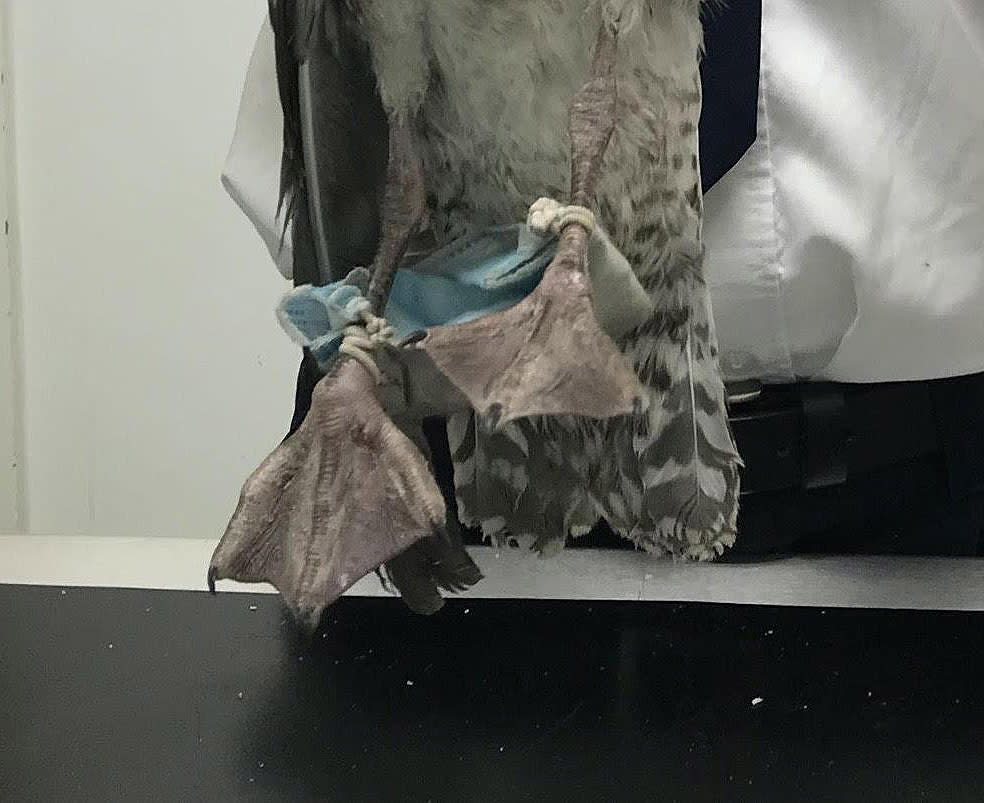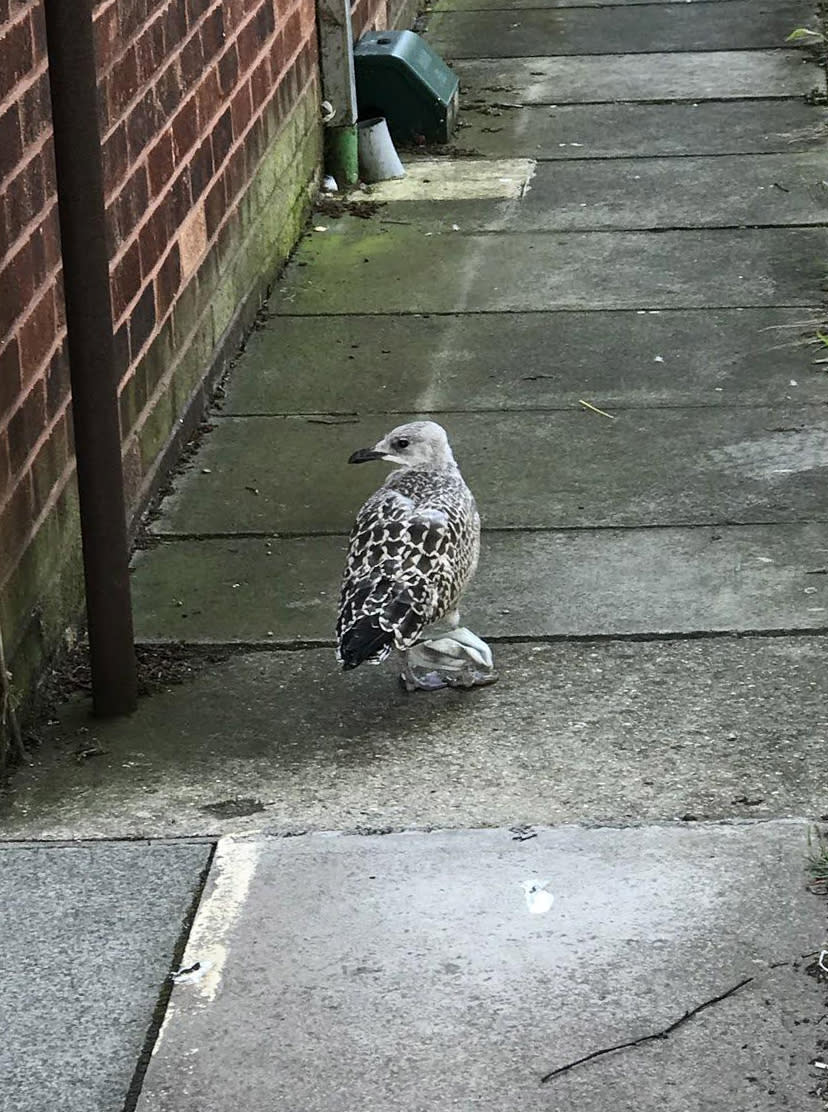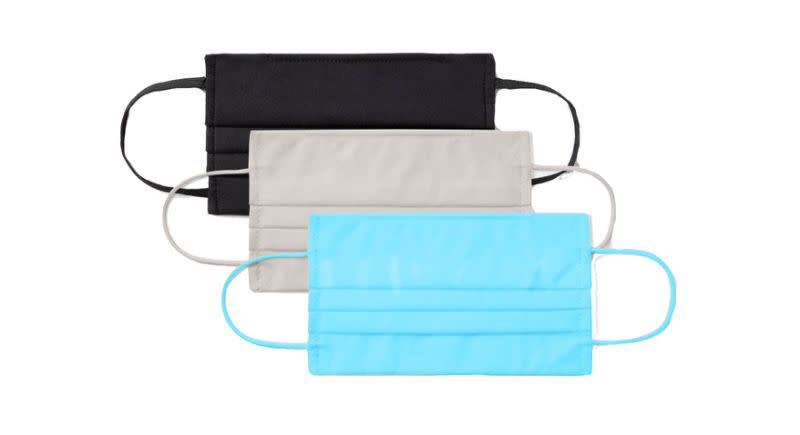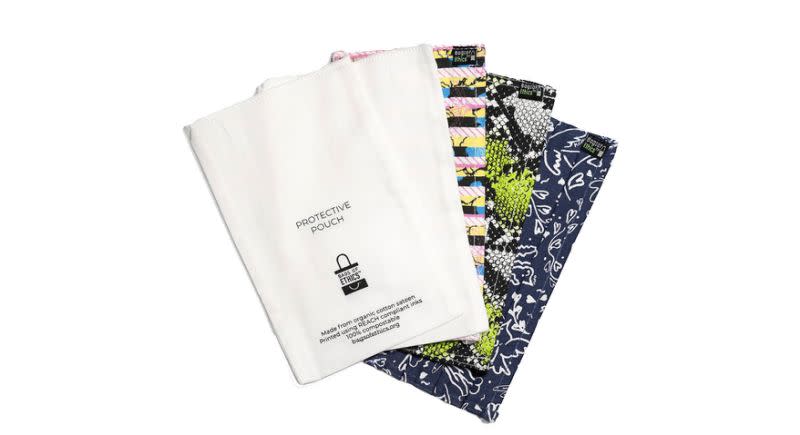Injured birds and clogged up rivers: Why you should think twice before using a disposable face mask

Phone, keys, wallet, face mask.
Our routine when leaving the house has changed in 2020, with measures to tackle the coronavirus pandemic meaning that face coverings are now a part of our everyday lives.
But, there has been an unwanted ramification of our new habits. Leading environmental charities are warning people that they need to be more careful with how they’re discarding disposable masks and urging them to choose reusable ones instead where possible.
Read more: Easy ways to reduce food waste
A young seagull was found hobbling around the streets of Chelmsford, Essex, with a disposable plastic mask around its feet. The mask left the gull with “sore and swollen legs” according to the RSPCA.

Yahoo Lifestyle is committed to finding you the best products at the best prices. We may receive a share from purchases made via links on this page. Pricing and availability are subject to change.
RSPCA inspector Adam Jones was called to Argyll Road, Chelmsford, after reports that a seagull was struggling to walk.
“It’s clear the mask was there for some time and the elastic straps had tightened around his legs as his joints were swollen and sore,” said Jones.
“Thankfully, he’s been doing well and is being monitored closely. They’ve now released him out into an aviary with other gulls and, when the group is ready, they’ll all be released together.
“I’m concerned that this gull could be the first of many victims now that face masks are the norm.
“I’d appeal to all members of the public to ensure they dispose of their face masks and disposable gloves - and all other types of litter - properly and responsibly, so that animals don’t get hurt.”
Read more: John Lewis launches hand-me-down initiative
Worldwide, face masks have been found by divers in the South of France and in the beak of a kite in Hong Kong.
“Throwaway masks are the latest plastic menace to be found strewn across parks and pavements. They find their way into our waterways, clogging up our rivers and seas and degrading into harmful microplastics, Louise Edge, senior campaigner at Greenpeace, explained.
“But disposable masks are not inherently safer for general public use than reusable ones, and experts say reusable masks can protect us during the pandemic, if worn and washed properly.”
Read more: Johnnie Walker set to sell its whisky in full-recyclable paper
How to properly dispose of your face mask
If you do choose to use a disposable face mask, it’s imperative that they don’t find their way onto the ground and are instead disposed of properly.
Before recycling plastic face masks, remember to cut the ear loops on either side of the mask. This will prevent animals getting entangled in the straps.
Greenpeace also recommend considering using reusable face masks instead: “Plastic masks float like jellyfish in water so turtles can mistake them for food and other wildlife like seabirds can become tangled in the plastic.
“We know better than to add to the plastic pollution problem. Blue Planet opened our eyes to the hazards of plastic in the oceans, and we mustn’t look away now,” Edge added.
PETA director, Elisa Allen, also voiced her support for reusable masks: “As with plastic straws, carelessly discarding face masks, gloves, and other protective gear doesn't just pollute our parks, woods, and beaches – it can be deadly to animals.
“Birds have died after becoming entangled in face masks, while dolphins, turtles, and other marine animals can easily choke or suffer from fatal bowel obstructions when they mistake PPE for food. It's vital that single-use items be disposed of properly – and it's important that those outside of a medical environment consider opting for reusable, machine-washable cloth masks.”
Shop reusable fabric face coverings
Yahoo Lifestyle is committed to finding you the best products at the best prices. We may receive a share from purchases made via links on this page. Pricing and availability are subject to change.









